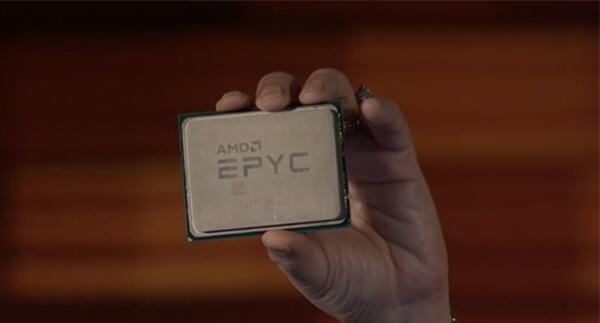Single-processor solution shakes datacentre space
Article By : AMD

AMD is leveraging on EPYC to compete and make a mark in the server market.
Advanced Micro Devices Inc. (AMD) has launched the EPYC (formerly codenamed Naples), a new family of high-performance products for cloud-based and traditional on-premise datacentres that deliver the Zen x86 processing engine scaling up to 32 physical cores. The first EPYC-based servers will launch in June.
With its high core count, superior memory bandwidth, and unparalleled support for high-speed input/output channels in a single chip, EPYC aims to revolutionize the dual-socket server market while simultaneously reshaping expectations for single-socket servers.
The company claims that the EPYC exceeds today's top competitive offering on critical parameters, with 45 per cent more cores, 60 per cent more input/output capacity (I/O)2, and 122 per cent more memory bandwidth.
"Dropbox is currently evaluating AMD EPYC CPUs in-house, and we are impressed with the initial performance we see across workloads in single-socket configurations,” said Akhil Gupta, vice president of infrastructure at Dropbox. “The combination of core performance, memory bandwidth, and I/O support make EPYC a unique offering. We look forward to continuing to evaluate EPYC as an option for our infrastructure."
Features
- Highly scalable, 32-core SoC design, with support for two high-performance threads per core
- High-quality memory bandwidth, with 8 channels of memory per EPYC device. In a dual-socket server, support for up to 32 DIMMS of DDR4 on 16 memory channels, delivering up to 4 terabytes of total memory capacity
- Complete SoC with fully integrated, high-speed I/O supporting 128 lanes of PCIe 3, negating the need for a separate chip-set
- Highly optimised cache structure for high-performance, energy-efficient computing
- Infinity Fabric coherent interconnect for two EPYC CPUs in a dual-socket system
- Dedicated security hardware
“Today’s single-socket server offerings push buyers toward purchasing a more expensive two-socket server just to get the memory bandwidth and I/O they need to support the compute performance of the cores,” said Matthew Eastwood, senior vice president, IDC. “There are no fully-featured, high-performance server processors available today in a single-socket configuration. EPYC changes that dynamic by offering a single-processor solution that delivers the right-sized number of high-performance cores, memory, and I/O for today’s workloads.”